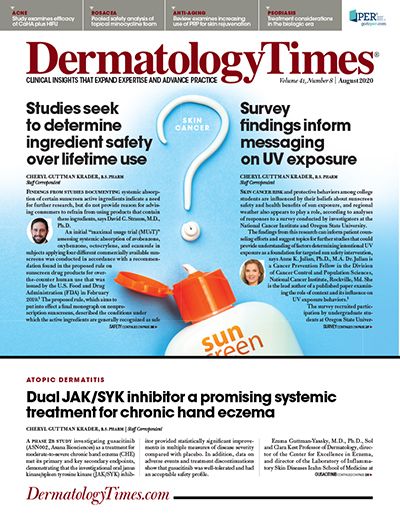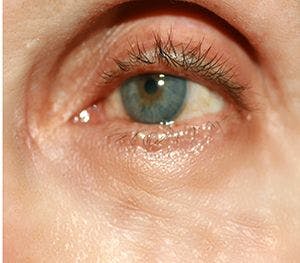- Acne
- Actinic Keratosis
- Aesthetics
- Alopecia
- Atopic Dermatitis
- Buy-and-Bill
- COVID-19
- Case-Based Roundtable
- Chronic Hand Eczema
- Chronic Spontaneous Urticaria
- Drug Watch
- Eczema
- General Dermatology
- Hidradenitis Suppurativa
- Melasma
- NP and PA
- Pediatric Dermatology
- Pigmentary Disorders
- Practice Management
- Precision Medicine and Biologics
- Prurigo Nodularis
- Psoriasis
- Psoriatic Arthritis
- Rare Disease
- Rosacea
- Skin Cancer
- Vitiligo
- Wound Care
Publication
Article
Dermatology Times
Is Covid-19 a defense to a battery charge?
Author(s):
Dr. Joe acquired a new laser prior to the pandemic. Three patients are scheduled for treatment during which he had told them a laser expert would be present. The laser expert deferred due to COVID-19. After carrying out the procedures alone, one patient sues for battery, though there were no adverse events. Is this battery? Can Dr. Joe use COVID-19 challenges as a defense?
Dr. Joe’s patients are in a euphoric post-COVID-19 quarantine mood, and they are all returning for aesthetic treatments. Before the pandemic, Dr. Joe acquired a new laser. Because he is conscientious, he included a clause in his laser purchase contract that provided that laser expert Dr. Doe would come to Dr. Joe’s office to help him with his first day of treatment. Dr. Joe had three patients scheduled for his first day. He had told all three patients that world-renowned laser expert Dr. Doe would be assisting with the treatments.
One of the three patients was very anxious and scheduled the treatment only because Dr. Doe would be assisting. In addition, because of this patient’s anxiety, each of the three patients signed a general consent form that stipulated their agreement to undergo the procedure by Dr. Joe.
Unfortunately, on the actual day of treatment, Dr. Doe had to cancel his visit because he was made aware that several of his own employees had tested positive for COVID-19. Dr. Joe treated the three patients alone, and there were no complications. However, soon after the procedure date, the anxious patient learned that the new procedure was performed solely by Dr. Joe. This caused him great distress. He sued Dr. Joe for battery.
The basis of the suit was that although no untoward event happened during the procedure (malpractice), a procedure was performed on him for which he never provided consent. The plaintiff expected Dr. Doe to be present during the procedure.
Dr. Joe has now determined that a lawsuit based in battery is not be covered by his medical malpractice insurance. He has conceded that the patient had been told that the procedure would be performed by both he and Dr. Doe. However, he cannot understand how a battery cause of action could proceed against him. He knows that such a lawsuit against him, if successful, could cause him to lose his medical license even though no untoward event occurred. Can the difficulties related to COVID-19 be an excuse?
Many legal cases have now examined the issue of whether a plaintiff can recover for the substitution of a healthcare provider absent actual harm. In a well-known New Jersey case, a patient consented to undergo spinal fusion by his physician knowing that the procedure would be performed by both his doctor and another world-renowned surgeon who would be spending the day with his doctor.
On the day of the procedure, the famous physician was not available. His physician substituted an associate to help him with the surgery. The signed consent form never stipulated that the procedure was to take place under the guidance of the famous surgeon. Unfortunately, there were numerous post-operative complications, none of which led to any permanent injury.
The patient chose to sue on a theory of battery and not medical malpractice based on negligence. Negligence would have required proving damages. The battery cause of action could be brought absent any injury. It was based solely on a procedure being performed without the patient’s consent.
The New Jersey court looked at cases based on a lack of informed consent and noted that in order to be successful, the patient must prove that the doctor withheld pertinent medical information concerning the risks of the procedure, the alternatives, or the potential results if the procedure or treatment was not undertaken. The suing plaintiff must also prove causation, which requires a showing by the plaintiff that a reasonably prudent person in the plaintiff’s position would have declined to undergo the treatment if informed of the risks that the defendant doctor failed to disclose. Thus, the court required damages for informed consent lawsuits, much like it did for negligence lawsuits.
True battery, based on a lack of informed consent, was reserved solely on those instances where the patient consented to one type of operation, but the physician performed a substantially different one from that for which authorization was obtained — or where no consent was obtained
The New Jersey court assumed that the surgeon had made the promise of having the expert surgeon present — even though this was not contained in the signed consent form. The suing plaintiff, in fact, had consented to the surgery and to his physician performing that surgery. The court found that there was no evidence that the surgeon had deviated from the standard of care. The plaintiff had also suffered no harm. Since this claim was based on informed consent, and not medical battery, the plaintiff was entitled to nothing.
Similarly, Dr. Joe had obtained consent from his patients for the new laser procedure. The procedures were performed without complication. There is no basis for a medical malpractice claim based on informed consent there was also no basis for a suit based in battery. A COVID-19-related defense is not required.

Newsletter
Like what you’re reading? Subscribe to Dermatology Times for weekly updates on therapies, innovations, and real-world practice tips.






















